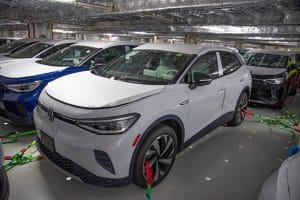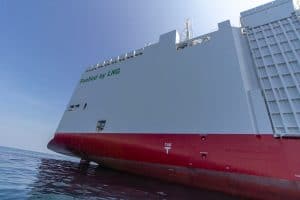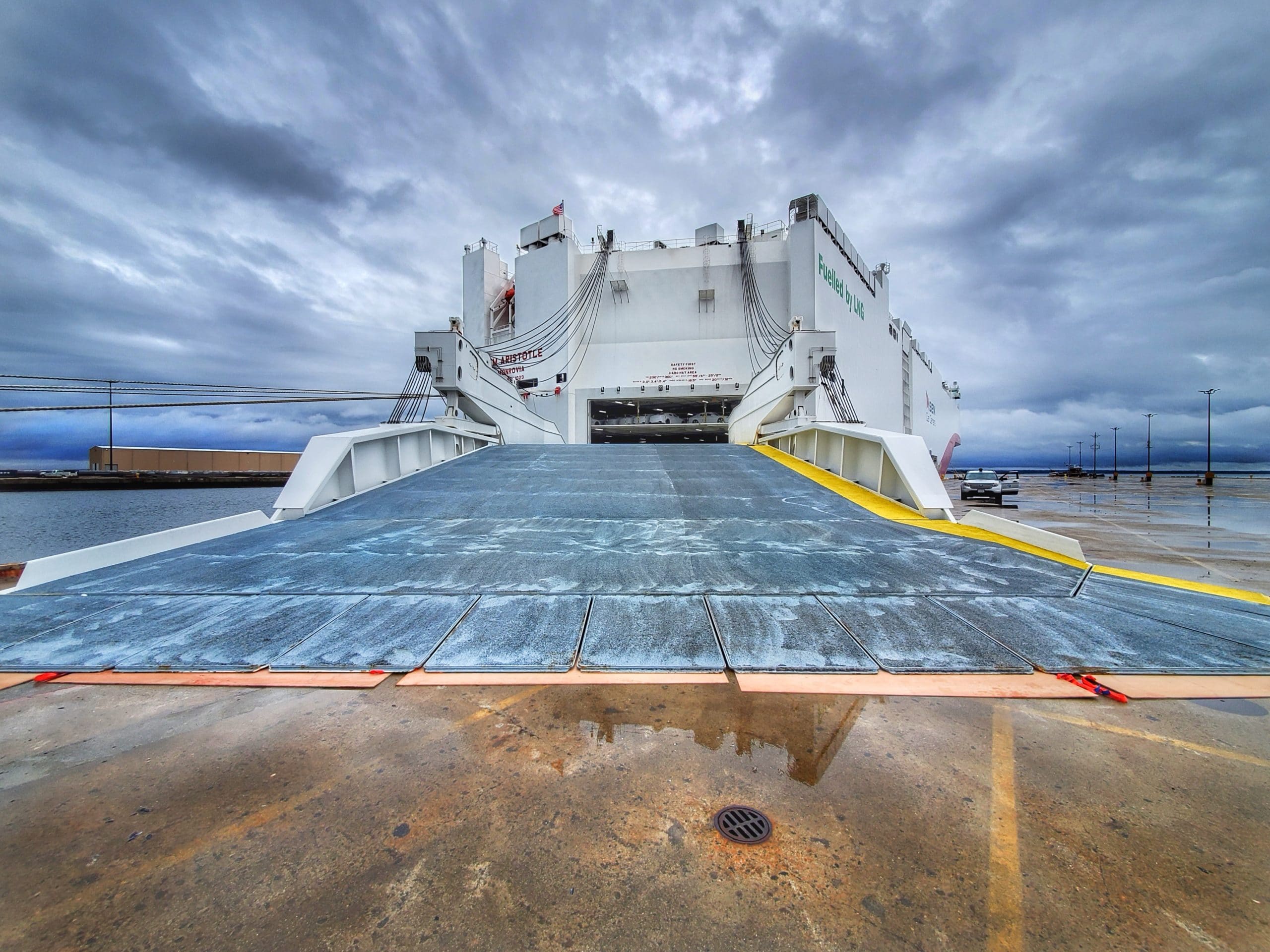The future is looking bright for increased electric vehicle (EV) sales in the United States. The U.S is following in the EU’s footsteps for stricter emissions standards, with President Biden announcing last week that 50% of car sales in the country are to be EV’s by the year 2030. This target is similar to the EU, whose goal is to have at least 30 million EV’s on the road by 2030.

A Volkswagen EV secured aboard the Siem Aristotle.
What does this mean for Car Carriers and the Shipping Industry?
Siem Car Carriers and the rest of Siem Shipping welcome the switch to electric vehicles, as alternative fuels and emissions reductions are just another area where Siem is future-focused. Since the inception of the LNG-fueled Siem Confucius and Siem Aristotle, reductions in carbon dioxide (CO2), nitrogen oxide (NOx), sulphur oxide (SOx), and particulate matter have been reduced significantly, increasing the desire for future LNG builds in the SCC fleet.
There are potentially negative impacts that could affect how Car Carriers are able to handle increased EV volumes in the future. However, Siem Car Carriers has continued to think ahead and consider the new challenges that come with a changing auto industry.
One of the most significant impacts for all Car Carriers is the additional weight of EV vehicles. With current technology, the weight of such vehicles can easily be 20% greater than conventional ICE. Significant advances in battery technology will improve the range of the vehicles, and may also permit a reduction in weight, but it is anticipated that these vehicles will still weigh more per unit than conventionally fueled vehicles. This has effects on the overall strength of vehicle decks, stability, and deadweight capacity.

The Siem Aristotle and Siem Confucius (shown above) proudly sport "fuelled by LNG" on their hulls.
SCC's LNG vessels are ready for a bright future.
Many existing PCTCs have car decks with UDLs of only 0.2t/m2 or 0.25t/m2. This is not sufficient to permit the same stowage factors as conventional vehicles if carrying large quantities of EVs on one deck without exceeding the global strength of the deck. However, SCC’s new LNG PCTCs both have 0.3t/m2 deck strengths (enough for electric vehicles) and were also designed to be able to carry Hydrogen powered cars on some decks.
Our LNG-fueled vessels hauling a few thousand electric vehicles across the Atlantic Ocean is the perfect scenario. Reductions in the emissions will be drastically improved throughout the entirety of the supply chain, from the vehicle leaving the production plant, all the way to its arrival at the destination city, continuing as it is purchased and driven in place of a conventionally fueled automobile.
SCC has been leader in this area and these efforts were recognized by Volkswagen when they awarded SCC with the 2020 Volkswagen Sustainability Award. This award commended SCC on taking a pioneering approach to sustainability, environmental and energy conservation, by commissioning the two largest, ocean-going LNG ships that will be used to transport vehicles between Europe, Canada, the USA, and Mexico.
Dr Christiane Eckert, Head of Group Production Strategy and Environment at Volkswagen AG, the godmother of the Siem Confucius and Siem Aristotle, was present at the naming ceremony which took place in Xiamen, China (as seen in corresponding image above).
“To me as director of strategy and environment at Volkswagen Group production, it is a very proud moment to see how these vessels are “coming alive” today. With them, we will be starting into a new era of sustainable overseas shipping. On behalf of the Volkswagen Group, I thank you all very much for making this happen, this will even further strengthen our long lasting and fruitful partnership with SIEM.” – Dr. Eckert


